It’s about supporting residents to be part of the change they want to see. It is only by working together that we will really make these things happen
Joining up people, places and populations to improve local health and wellbeing and help people get the right care, faster
Over the years, a number of reforms have sought to strengthen the NHS as one of the country’s most important and beloved institutions. The dawn of Integrated Care Systems recognises it’s not just those three letters that influences the health of local communities: it’s a whole ecosystem.
Chris’s story is powerful, it helps demonstrate how individuals, community groups and local services should all be part of the same team to keep people healthy and well.
Chris’ story transcript
In mid and south Essex, we’re exploring the benefits of joined up working in health and care through the eyes of local people.
Chris lives in Thurrock. Following a difficult upbringing growing up in Lancashire, Chris developed issues with alcohol, drugs and gambling. After years of struggling, he sought help and became clean and sober in 2012 after moving to Essex. His moment that mattered was getting support from local health and care organisations to set up a football club called Turning Corners.
“The club aims to support men with addiction issues and helps them to turn their lives around for the better. When I was using and drinking drugs and alcohol and all the rest of it and gambling, I had no direction. I had no purpose. Basically, my life was just had nowhere; death, institutions or jail, and I’ve turned off the road just in time with so much help from so many different people.”
“So many people that have invested time and effort into me to get me where I’m at now. I never really believed in my heart of hearts that I was going to end up with a good job, that I loved. And I believe, not that I’m doing this for any type of, like, to be paid because I don’t get paid. Like I get paid so much more than money doing what I’m doing. My spirit is cleansed completely from what I do, and all I’m doing is turning up and being myself. In the hope that it gives other people that belief that they can be themselves. We always make sure that everybody is alright because not most blokes like to come out openly and say, yeah, “I’m having a bad time” or “I’ve had a drink” or whatever. The development beyond just football has been extraordinary. The development of that community of recovery, that community of people who help each other not just with addictions but mental health, is extremely powerful.”
Someone like Chris is using that lived experience to help other people, and it really has, the whole project has exceeded my expectations, and Chris’ ability to draw people in has also exceeded my expectations and I couldn’t be prouder. Coming here is more for me just an escape from everything. It means so much to me now. I actually look forward to Fridays and look forward to the football days and the different events that we have and seeing the lads and having a kick about. It means a lot, considering it’s 90 minutes out of my week it’s probably the best 90 minutes of my week. So it means it means the world to me.
With Chris, it was evident right from the start that he had this very unique way of engaging with people and Turning Corners is about how Chris engages with men who wouldn’t normally engage with formal services, he reaches out to people that might just slip through the net. And that’s the importance of what Chris is trying to achieve here.
“In spite of my own struggles, I’m able to help people put their mind at rest and help them fit into a group of people that’s good for them. It’s a safe environment for people to, yeah, to grow and to find some happiness in their life without feeling pressured to use drink or drugs or, or all things that are not very good and all leads to bad mental health.
Health and care organisations working together to support community projects like Turning Corners means: more personalised care, enabling peer to peer support for people experiencing similar issues. It will prevent ill health to help people take control, tackle issues early on and avoid them ending up in a crisis situation and achieving better outcomes, delivering support in the community to improve people’s health and wellbeing.
“People need good stuff in the community. There’s always a place for formal services, but what really keeps people well is their connections with each other. But, you know, if we can connect people and build on really good relationships so that people have their own natural support in the community, that’s the good stuff that keeps people well. And that’s exactly what Turning Corners does.”
Mid and South Essex Integrated Care System. Together we can make the moments that matter.
A year has gone by since Mid and South Essex Integrated Care System (ICS) was established. In this time, health and care leaders have been working together, balancing both short-term and longer-term priorities.
It is vital that local people can access the care they need now and that services remain sustainable to meet the future needs of our population.
To tackle the root causes of ill-health, we need to act differently. This report looks at progress to combine our efforts so that every pound is spent in the right way to make a difference in health and care outcomes for and with local residents.
Around 80% of health outcomes are determined by non-clinical inputs, such as education, employment, housing and the environment* solutions require actions beyond the remit of healthcare.
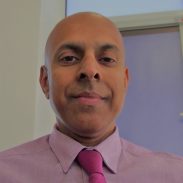
It is excellent to see the wider determinants of health, including socio-economic factors, the built environment and healthy behaviours, as being central to the Integrated Care Strategy. Health and care services will only ever be part of the solution, we need to be working to build healthy, resilient communities, with the knowledge and skills to help themselves, as much as being supported by services.
Working to improve outcomes in population health and healthcare
One size doesn’t always fit all. Local people with multiple conditions have told us they want services to work together to focus on their individual needs and preferences and offer better support for mental wellbeing.
Last year, John a retired driver in Benfleet, benefitted from a new joined-up approach to care. Alongside others, he had been identified as someone whose health was at risk of going downhill. A health and wellbeing coach, working as part of a GP team, helped John to identify and reach his own health and wellbeing goals.
Initial discussions around weight and exercise moved to struggles with lower back pain, low mood, tiredness and issues managing his diabetes. John’s unexpected retirement in 2020 meant he’d lost his purpose in life. He didn’t like others seeing him struggle, admitting he’d had suicidal thoughts. He spoke about financial concerns and being able to afford to take part in activities that he would enjoy, having not ventured far from his home because of his health.
The local team at the GP practice listened and worked with the gentleman and other professionals to activate a tailored health and care plan. Positive changes were immediate, with goals set to walk to the post-box with his wife without stopping and to get back into his hobby of racing pigeons. Importantly, ongoing reviews show he is feeling more positive, he’s lost some weight and is on new diabetes medication after speaking to a clinical pharmacist at his GP practice.
In the last year, more integrated neighbourhood teams have come together to deliver better co-ordinated services to local people. These teams consist of professionals from various disciplines, such as healthcare, social care and the community and voluntary sector. By working together in a ‘one workforce’ approach, teams can better understand both the specific needs of an individual and the community it supports helping develop tailored interventions to help support wellbeing.
More help in the community
Supporting, adapting and growing our workforce has been front and centre of our work in the last year.
Nearly 500 additional health and care professionals are now working in GP practices in mid and south Essex to strengthen local teams and bolster support in the community.
New social prescribers working in GP practices are helping connect people to support in their community. Initiatives like Chris’s community football team and other community groups offer non-medical support and activities to improve overall wellbeing.
Paramedics, mental health professionals, physiotherapists and pharmacists are also working as part of the GP team. The additional skillset brings more expertise into the community and help free up GPs to deliver more comprehensive care to people with more complex needs.
By offering better support for people to manage their health, GP teams can help their patients avoid stressful emergencies wherever possible.
Steve’s story explains how better access to specialist mental health support at his local GP practice meant he could access the right care faster.
Chris’ story transcript
In mid and south Essex, we’re exploring the benefits of joined up working in health and care through the eyes of local people.
Steve lives in Thurrock. His moment that mattered was being able to quickly access mental health services in primary care when he needed them. This meant he received support for his mental wellbeing, building his confidence and helping him to gain a new lease of life.
“It was a cry for help, basically. Issues regarding my health and being spending a bit of time in prison. It all came on top of me, like going down a plug hole I was just going further and further down and I know I needed help.”
Mental health professionals are now based in some GP surgeries to support people who may be experiencing difficulties with their mental health. This may include low mood, stress, bereavement or eating disorders to name but a few. The needs of every single person are different, and so these professionals work closely with partners across a wide range of services and organisations, – including social care and psychology, to help provide wraparound care, ensuring that residents can access the best services for them.
Bringing care closer to home and joining up services will mean: more personalised care, tailoring support to meet individual needs. It will prevent ill health, to help people take control and tackle issues early on and avoid them ending up in a crisis situation, and achieving better outcomes, delivering better joined up care closer to home to improve health and wellbeing.
“This service basically bought me back to normality. I’m not the shell, shy person I was indoors, scared to go outside. It’s gave me a new lease of life.”
Mid and South Essex Integrated Care System. Together we can make the moments that matter.
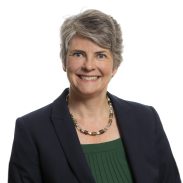
As our Integrated Care Strategy shows, having good access to primary care and ensuring residents use the full range of primary care services available, including community pharmacy, social prescribing, etc. remains a central concern for our residents. For those of us working to support the development of primary care, we are pleased to have the support of the wider Integrated Care Partnership in this journey together.
Tackling inequalities in outcomes, experience, and access
We know that different groups of people have poorer health and care outcomes in mid and south Essex and health and care partners all share the same goal to change that.
In March this year we launched a new Integrated Care Strategy calling for collective action to tackle health inequalities.
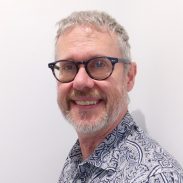
The ‘Common Endeavour’ which sits at the heart of our strategy, seeking to reduce health inequalities together, is a powerful statement of shared intent. But it’s the ‘together’ bit which holds the promise of making a real difference here. We really need to unite with communities, hearing their lived experiences and co-producing solutions which help them live long and happy lives.
Building on work during COVID-19, partners continue to join forces to reach people who wouldn’t otherwise access traditional services to keep them well.
Outreach to Gypsy, Roma, Traveller and Showman communities in Thurrock is just one example. Aside from helping to catch diseases like diabetes early and undertake important health checks, collaborative working with Thurrock Council means advice around finance, education and employment can be offered at the same time.
Working better together
Linking up data is a fundamental step in understanding which communities and groups would benefit from targeted help.
In the past year we have been working to develop a ‘single source of truth.’ By having a clearer picture we can better design services and target interventions specific to our population.
Targeted support and interventions in Southend and Thurrock is already helping to save lives and prevent more families suffering the heartache of losing a loved one through targeted lung health checks.
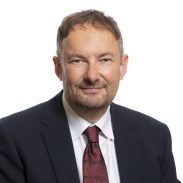
Health and care systems are by their very nature complex and the health and social care challenges they seek to address are complex too. It is only by coming together, in forums like our local Integrated Care Alliance here in Thurrock, or the wider Mid and South Essex Integrated Care System, to share what works well and learn from each other, that we will have any chance of making a genuine difference. Our Strategy puts it well – ‘It is not enough to do things differently; we need to be prepared to do different things.
Dr Sophia Morris, clinical lead for inequalities has written a blog that explains how health and care partners are working in other ways to connect with our communities and find solutions to narrow the gap in health inequalities.
Find out about other programmes to reduce health inequalitiesSustainability
Enhance productivity and value for money
This can often lead to a poor experience and duplication with people having to repeat their stories time and time again and disjointed pathways of care delaying action.
Local people deserve to experience health and care as one seamless, integrated offer of support.
Transforming care for older adults in Essex
A programme called ‘Connect’ has seen teams from across the health and care system aligned on a common goal: achieving more independent outcomes for older people.
Working together to test and iterate changes on this shared agenda has transformed care at the frontline in a way that is sustainable, measurable, and crucially, is helping us to achieve fantastic improvements to the outcomes of older people in Essex who look to us for care, while making the most of our resources across the system.
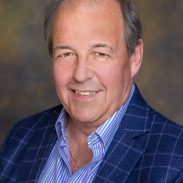
As partners in the Mid and South Essex ICS, we at Essex County Council are excited by the opportunity to work in new ways for the benefit of our residents. The more seamless we can make the provision of health and care services – indeed, the more complete we can make the whole chain starting with the prevention and health lives – the happier and better quality those lives will be.
Stewardship
Over the last 12 months we have continued to develop a new innovative approach that places multi-professional clinical leadership at the helm, called stewardship.
Stewardship brings together people, we call stewards, from the coalface of services alongside people with lived experience related to a particular care area, i.e. cancer. They have the responsibility to re-shape how health and care services deliver value for local residents. From education, initial consultations at a GP practices, through to diagnosis, treatment and ongoing management, maximising the use of technology.
Great progress has been made by our stewards in the last year so that local people can get the right care, faster – helping to cut waiting times.
Helping to support broader social economic development
Health and care organisations are one of the biggest employers locally and play a significant role in their local community’s economic and social development. Partners from across our system have been exploring how they can make broader commitments to support local wellbeing, as an employer, procurer or advocate for carbon reduction.
The Mid and South Essex ICS Anchor programme has been working to:
- Support employment in health and social care.
- Nurture young people and families.
- Join forces with communities and partner organisations.
- Support organisations in finding opportunities to increase social value.
- Identifying ways to boost wider determinants of health.
I didn´t think I´d get my dream job. I didn´t have much confidence. I attended the Anchor Recruitment Day, feeling nervous, but everyone was so friendly and reassuring. I was offered a job as a healthcare assistant there and then! I had my first shift on 15th September and loved it.
Basildon resident